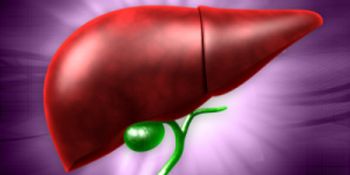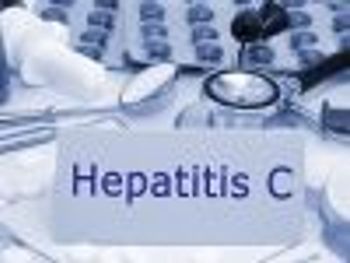
A multicenter study will examine whether a drug used to treat rheumatoid arthritis can improve kidney transplant patients' health.

A multicenter study will examine whether a drug used to treat rheumatoid arthritis can improve kidney transplant patients' health.

Screening of newborn children for hepatitis C and new, more effective hepatitis C treatments may virtually eliminate the disease in the United States by 2036.


New therapies can cost patients $84,000 for a standard 12-week course of therapy.



Stephen Vogt, PharmD, Chief Executive Officer and President of BioPlus Specialty Pharmacy, discusses the ongoing debate surrounding the high price of Hepatitis C treatments versus the efficacy of the drug.


A study finds that patients co-infected with hepatitis C and HIV who are receiving antiretroviral therapy are 80% more likely to have serious liver disease than those with hepatitis C alone.

The cost of specialty drugs is driving increases in overall unit cost, according to an annual Catamaran Corporation report.

An analysis of several phase III clinical trials suggests that health-related quality-of-life scores decrease less when patients receive sofosbuvir therapy than interferon therapy.

Hepatitis C treatment guidelines have been updated to include several new drugs.




Therapies for hepatitis C, cancer, and orphan conditions are among the specialty drugs expected to receive approval in 2014.

In a phase II trial, combination treatment with simeprevir and sofosbuvir yields functional cure rates exceeding 90% in patients receiving 12 weeks of therapy-even among difficult-to-treat patients.

By offering quick and convenient tests for diseases such as influenza, HIV, and hepatitis C, community pharmacies could help improve prevention and treatment.

Bristol-Myers Squibb submitted NDAs for daclatasvir and asunaprevir. Although asunaprevir is limited to treatment of genotype-1 HCV, a combination of daclatasvir with sofosbuvir may be useful in a range of HCV genotypes.


Efficacy of standard dose can be suboptimal in patients with hepatitis C, study shows.

Patients with co-infection are 80% more likely to have serious liver disease than patients with hepatitis C alone, study finds.

Of the 3 to 4 million Americans with chronic HCV infection, only 13% to 18% have received treatment. Understanding the current guidelines in HCV treatment and understanding the current role of direct-acting antiviral agents is an important priority for pharmacists.

In 2013, many new medications and new indications were approved.

Should all patients should have access to all treatments, regardless of their cost?